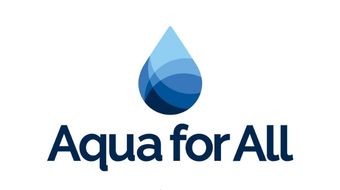We have all set goals in our lives, whether to pick up a new hobby, make it to the gym a couple more times a month or simply spend more time with family and friends. These goals are easy to measure. As most millennial 20-somethings, I recently tried to pick up a new hobby of charcoal drawing. I set the goal of drawing once a week. This clearly defined goal with a clear metric, allows me to assess my progress, or failure. But, what about looking beyond individual goals? How do we as a society measure our progress towards goals that are a little more ambiguous, such as creating a cleaner and more just world?
The Sustainable Development Goals (SDGs) are meant to do just that and accelerate achieving a cleaner, healthier and just planet. Most of the goals listed in the SDGs are incredibly complex and deeply challenging problems that have proliferated throughout society. As the Associate Director of the Toilet Board Coalition, most of my professional focus has been on SDG 6, which is essentially inclusive of the world’s poop problems. More specifically, the component of SDG 6 that states “By 2030, [the world will] achieve access to adequate and equitable sanitation and hygiene for all and end open defecation, paying special attention to the needs of women and girls and those in vulnerable situations”.
Similar to setting a personal life goal, this component of SDG 6 may sound pretty approachable to the naked eye; however, recent UN reports note that SDG 6 is off track, currently falling behind in progress needed to reach the 2030 goals. Though this is not ideal in anyone’s book, failing to adequately and equitably progress in creating improved sanitation for all is not new or unfamiliar in the global landscape.
But this UN report does inspire the following questions:
– How can we – the water, sanitation and hygiene (WASH) sector – accurately measure our progress on sanitation?
– How can we leverage new technological innovations to help us answer this question?
Progress needs data and data should make progress clearer. This isn’t to say that we are on a sinking boat trying to end open defecation around the world, but the traditional methods of monitoring our progress to hold us accountable are just not cutting it.
Enter the Internet of Things (IoT). A decentralized, low cost technology that may be an answer and an effective means of capturing impact and progress metrics once unavailable.
IoT sensors are already integrating within sanitation systems. Sensors are being used to capture footfall traffic at public toilets as well as analyse sewage to help cities solve health challenges. IoT and other innovative decentralized technologies may help alleviate some of the sanitation sectors previous measurement blind spots, by reducing the cost and time needed to collect sanitation data.
Simply, IoT expands the possibility of when and where sanitation data can be collected. Other issues still on the list to tackle: data transparency, universally accurate data collection and reporting, and defining the ‘impact’ of adequate sanitation.
– Kelsey McWilliams, Associate Director of the Toilet Board Coalition






